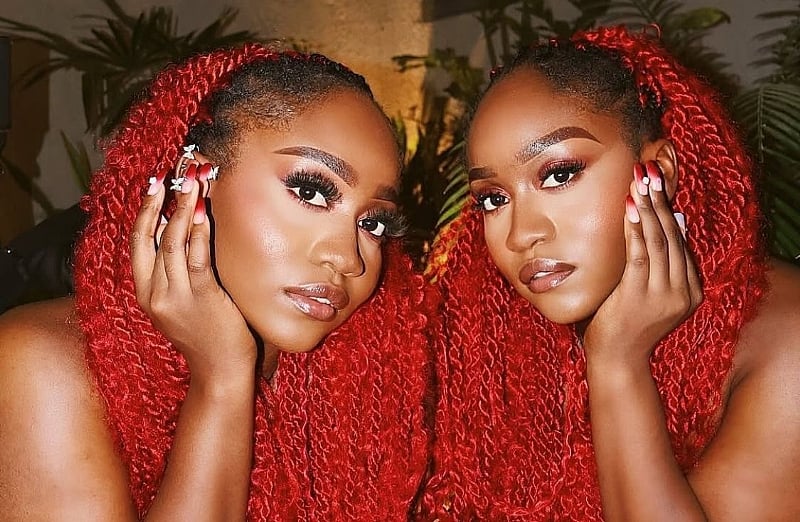Lali X Lola, a Ghanaian music duo recognized for their vibrant red hair and dynamic performances, have announced a striking decision to shave their heads as a symbolic gesture to promote peace and unity between two prominent dancehall artists, Shatta Wale and Stonebwoy. This bold move transcends mere aesthetics, representing a heartfelt plea for reconciliation within Ghana’s music scene. The twins emphasize that their decision is not driven by fashion trends but rather by a deep concern for the persistent division among the fan bases of these two influential figures. They envision a future where joint performances by Shatta Wale and Stonebwoy are celebrated as global achievements rather than perceived as security risks, highlighting the potential for a powerful and unified front in the music industry.
The gesture of shaving their heads carries significant weight for Lali X Lola, as their red hair has become a defining characteristic of their image and artistic identity. They recognize the potential impact of such a symbolic act, hoping it will resonate with fans and inspire a shift in perspective. The duo believes that by sacrificing a key element of their visual identity, they can draw attention to the greater issue of disunity within the music community and encourage a conversation about the importance of collaboration and mutual respect among artists. They see their action not as a loss but as a powerful statement about the value of unity and the potential for positive change.
At the heart of Lali X Lola’s message is a call for an end to the forced dichotomy that often compels fans and industry players to choose sides between Shatta Wale and Stonebwoy. They question the necessity of this division, particularly given the positive influence both artists have had on their own careers. Having benefited from performance opportunities provided by both Shatta Wale and Stonebwoy, the twins see no reason why they, or anyone else, should be pressured to align themselves with one artist over the other. This forced allegiance, they argue, only serves to perpetuate the existing rift and hinders the potential for collaborative growth within the Ghanaian music scene.
The duo further stresses the broader implications of a potential reconciliation between these two dancehall giants. They believe that a united front between Shatta Wale and Stonebwoy would not only bridge the divide among their respective fan bases but also set a powerful precedent for the next generation of Ghanaian artists. This example of collaboration and mutual respect, they argue, would foster a more cohesive and supportive environment within the music industry, encouraging emerging artists to prioritize unity and collaboration over rivalry and division. The impact of such a shift, they believe, would be profound and long-lasting, benefiting the entire Ghanaian music landscape.
Lali X Lola’s appeal extends beyond the artists themselves to encompass event organizers and authorities who often approach joint performances by Shatta Wale and Stonebwoy with apprehension. They challenge these stakeholders to view such collaborations not as potential security threats but as opportunities to showcase the strength and unity of Ghanaian music on a global stage. By fostering a supportive environment for collaborative performances, they believe these organizers can play a crucial role in breaking down the barriers that currently divide the fan bases and promoting a more inclusive and collaborative music scene.
In essence, Lali X Lola’s decision to shave their heads is more than a publicity stunt; it’s a heartfelt plea for peace and unity within the Ghanaian music industry. Their symbolic act serves as a potent reminder of the potential for positive change when artists choose collaboration over rivalry and fans embrace the unifying power of music. By sacrificing a key element of their visual identity, they aim to spark a conversation about the importance of mutual respect and collaboration, ultimately envisioning a future where joint performances by Shatta Wale and Stonebwoy are celebrated as triumphs of unity and artistic collaboration rather than viewed with apprehension. They believe that their sacrifice can contribute to a future where Ghanaian music thrives through collaboration and mutual respect, setting a positive example for future generations of artists.














